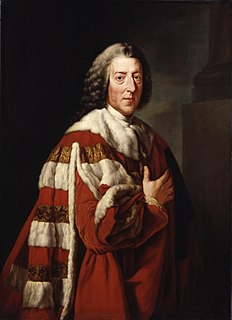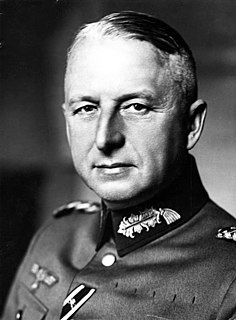A Quote by Confucius
The commander of the forces of a large State may be carried off, but the will of even a common man cannot be taken from him.
Related Quotes
Eisenhower had run the Army; he knew all the ways decision making can go off the rails, and insisted on collective debate precisely to prevent senior officials from freelancing, or putting their departmental interests first. For all the formal machinery, Eisenhower was very literally the commander in chief, making the key decisions himself and monitoring closely how they were carried out. Even years after D-Day, when critics needled him for not being on the front lines with the invading forces, he retorted, “I planned it and took responsibility for it. Did you want me to unload a truck?
There are forces more powerful and pervasive than the apparatus of war. You may chain a man, but you cannot chain his mind. You may enslave him, but you will not conquer his spirit. In every decade since the war Soviet leaders have been reminded that their pitiless ideology only survives because it is maintained by force. But the day will come when the anger and frustration of the people is so great that force cannot contain it. Then the edifice cracks; the mortar crumbles; one day, liberty will dawn on the other side of the wall.
There are three points of doctrine the belief of which forms the foundation of all morality. The first is the existence of God; the second is the immortality of the human soul; and the third is a future state of rewards and punishments. Suppose it possible for a man to disbelieve either of these three articles of faith and that man will have no conscience, he will have no other law than that of the tiger or the shark. The laws of man may bind him in chains or may put him to death, but they never can make him wise, virtuous, or happy.
From the State the exceptional individual cannot expect much. He is seldom benefited by being taken into its service; the only certain advantage it can give him is complete independence. Only real culture will prevent him being too early tired out or used up, and will spare him the exhausting struggle against culture-philistinism.
A friend is a person with whom I may be sincere. Before him I may think aloud. I am arrived at last in the presence of a man so real and equal, that I may drop even those undermost garments of dissimulation, courtesy, and second thought, which men never put off, and may deal with him with the simplicity and wholeness with which one chemical atom meets another.
The electrical matter consists of particles extremely subtile, since it can permeate common matter, even the densest metals, with such ease and freedom as not to receive any perceptible resistance.
If anyone should doubt whether the electrical matter passes through the substance of bodies, or only over along their surfaces, a shock from an electrified large glass jar, taken through his own body, will probably convince him.
Electrical matter differs from common matter in this, that the parts of the latter mutually attract, those of the former mutually repel each other.
The general verdict among the German generals I interrogated in 1945 was that Field-Marshal von Manstein had proved the ablest commander in their Army, and the man they had most desired to become its Commander-in-Chief. It is very clear that he had a superb sense of operational possibilities and equal mastery in the conduct of operations, together with a greater grasp of the potentialities of mechanized forces than any other commander who had not been trained in the tank arm. In sum, he had military genius.








































